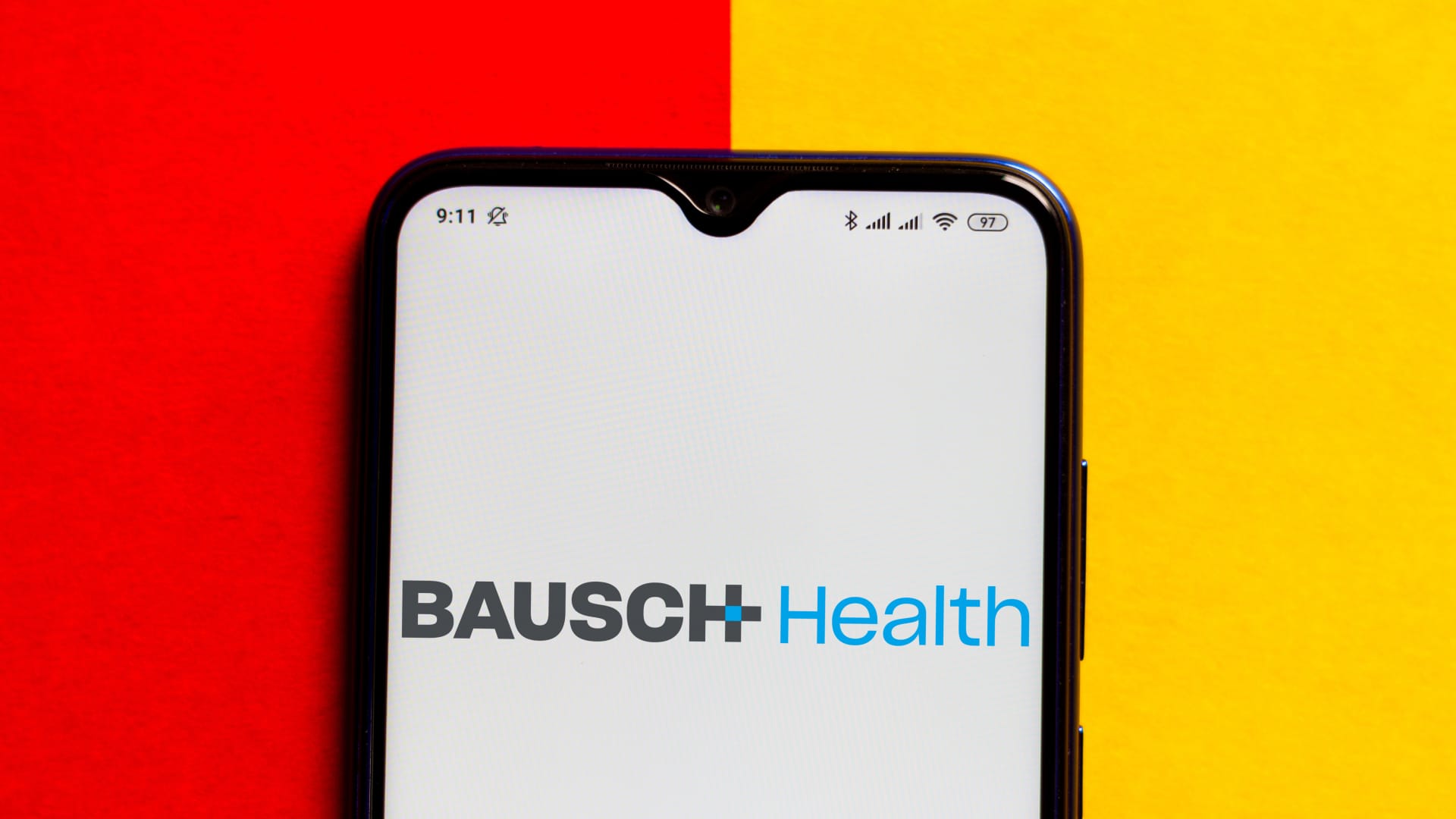Troubled Club holding Bausch Health Companies (BHC) reported better-than-expected quarterly results before the bell Thursday. However, it’s not nearly enough to get this stock out of the penalty box. Sales in the second quarter rose 10% to $2.17 billion, exceeding expectations of $2.04 billion, according to estimates compiled by Refinitiv. (On an organic basis — which adjusts for foreign currency fluctuations and the impact of recent acquisitions, divestitures and discontinuations — sales were up 11% versus the year-ago period.) Adjusted EBITDA (earnings before interest, taxes, depreciation, and amortization) advanced nearly 4% year-over-year to $727 million, also outpacing the $721 million consensus estimate. (Normally, we report on a company’s adjusted earnings per share. But, in the case of BHC, its debt load and other factors make adjusted EBITDA a better reflection of how the actual business is doing. So, that’s the number Wall Street focuses on) BHC YTD mountain Bausch Health Companies YTD performance Bottom line This was a strong quarter for Bausch Health as we got beats across all operating segments along with a raise to management’s full-year revenue forecast. That said, as we can see from the price action, an initial nearly 9% rally in BHC to over $10 per share faded somewhat as investors tempered optimism over good results. The reality is that the Xifaxan patent litigation is all that matters at the moment for anyone thinking about this name beyond a short-term trade. While there were some positive developments recently, the legal overhang remains. A final decision in favor of BHC in regard to Xifaxan would certainly be a catalyst for the stock. Another possible catalyst is the monetization of BHC’s Bausch + Lomb (BLCO) stake. Management did provide an update on a slight change to their strategy here — the plan to distribute 80% in a tax-free manner remains. The timing, however, remains unclear. As a result, we’re reiterating our 4 rating , which means don’t do anything until there’s more information. Until we gain more clarity on both situations, we cannot recommend any additional capital be allocated to the name at this time. Bausch + Lomb update On the earnings release, management highlighted a change in thinking about how to handle their stake in Bausch + Lomb. Rather than a spinoff, the company is now of the view “that the optimal way to implement the distribution may instead be through a tax-free reduction of capital.” What that actually means is still a bit of a question mark. On the call, management was pressed for an explanation of how this approach is any different from what was initially planned. However, we didn’t find the answers to be all that clear. According to management, the plan is still to distribute 80% of BLCO and this update was more of a behind-the-scenes “bookkeeping” change that should “create some additional strategic flexibilities for both companies.” Though it seems as if the change in plan is minimal, we expect analysts will be holding additional calls with management to better determine what this means from an accounting perspective and equally important, what it means in terms of timing to monetize the BLCO stake. We’ll be on the lookout for more information on the Bausch + Lomb situation in the coming days. Companywide Q2 results Excluding BLCO, which is still reported on Bausch Health Companies’ balance sheet and accounts for roughly 48% of sales, BHC revenue rose 10% to a better-than-expected $1.13 billion. Sales at the Salix division grew 11% year-over-year to $557 million, better than expected. Xifaxan sales, which represent 80% of Salix revenue, were up 9%. Xifaxan is used to treat irritable bowel syndrome with diarrhea (IBS-D) and overt hepatic encephalopathy (HE), which happens when a person’s liver cannot filter toxins that build up and reach the brain. International sales of $259 million benefited from strength in EMEA (Europe, the Middle East and Africa) and Canada as well as the lapping of weakness in the year-ago period. The Solta Medical aesthetics unit benefited from “strong growth in Asia Pacific,” which included the effect of the post-Covid reopening in China. Sales at BHC’s Diversified Products unit, which includes neurology pharmaceutical products, generics and dentistry products, did pull back around 3%. But the drop was far less than the 21% drop we saw last quarter and the $228 million total in Q2 outpaced expectations. Weakness in Neurology and Generics was partially offset by growth in Dermatology and Dentistry. Bausch + Lomb’s better-than-expected sales of $1.04 billion increased 10% from a year ago, which management attributed to “growth across all B+L segments.” Guidance BHC management raised their full-year revenue guidance for 2023 while reaffirming their adjusted EBITDA outlook. Both targets exceeded the expectations heading into the print. Excluding Bausch + Lomb, the team now expects full-year revenue to be in the range of $4.5 billion to $4.65 billion. That’s up from the prior guide’s $4.45 billion to $4.6 billion. There was no change to the adjusted EBITDA for Bausch Health excluding its BLCO stake. (Jim Cramer’s Charitable Trust is long BHC. See here for a full list of the stocks.) As a subscriber to the CNBC Investing Club with Jim Cramer, you will receive a trade alert before Jim makes a trade. Jim waits 45 minutes after sending a trade alert before buying or selling a stock in his charitable trust’s portfolio. If Jim has talked about a stock on CNBC TV, he waits 72 hours after issuing the trade alert before executing the trade. THE ABOVE INVESTING CLUB INFORMATION IS SUBJECT TO OUR TERMS AND CONDITIONS AND PRIVACY POLICY , TOGETHER WITH OUR DISCLAIMER . NO FIDUCIARY OBLIGATION OR DUTY EXISTS, OR IS CREATED, BY VIRTUE OF YOUR RECEIPT OF ANY INFORMATION PROVIDED IN CONNECTION WITH THE INVESTING CLUB. NO SPECIFIC OUTCOME OR PROFIT IS GUARANTEED.
Troubled Club holding Bausch Health Companies (BHC) reported better-than-expected quarterly results before the bell Thursday. However, it’s not nearly enough to get this stock out of the penalty box.
